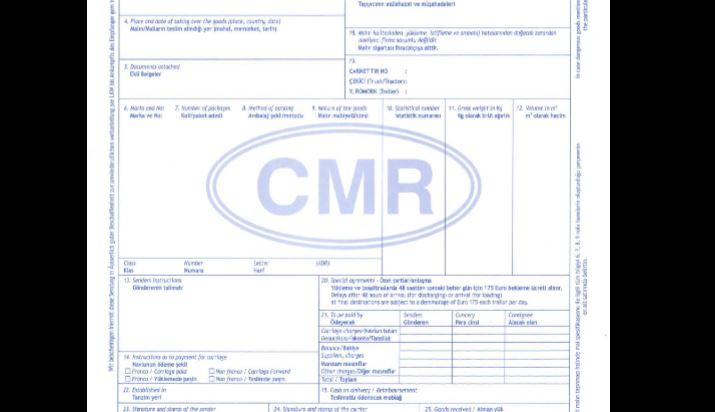The National Living Wage and National Minimum Wage
If you are a worker aged 23 and over, and not in your first year of an apprenticeship, you are legally entitled to at least the National Living Wage of £8.91 per hour.
Not sure what your current hourly wage rate is? Use this calculator to check.
It is illegal for your employer to pay you below the National Living Wage, so check your pay and talk to your manager to make sure you’re getting the wages you are entitled to.
Feel uncomfortable talking to your manager? Call the Acas helpline for confidential advice and support.
Think you are being underpaid? Register a confidential complaint with HMRC. Your details will not be shared with your employer.
If you’re an employer, by law from 1 April you must pay workers aged 23 and over the legal National Living Wage 2021 pay rate.
National Living Wage
The National Living Wage (NLW) is a higher rate of pay afforded to workers aged 23 or over. Until April 2021, the NLW was only a requirement for workers who have reached the age of 25. It is different to the Living Wage, which has no legal basis and is calculated each year by the Living Wage Foundation based on the average cost of living in the UK.
If you are 23 and over:
If you are a worker aged 23 and over, and not in your first year of an apprenticeship, you are legally entitled to at least the National Living Wage of £8.91 per hour.
Not sure what your current hourly wage rate is? Use this calculator to check.
It is illegal for your employer to pay you below the National Living Wage, so check your pay and talk to your manager to make sure you’re getting the wages you are entitled to.
Feel uncomfortable talking to your manager? Call the Acas helpline for confidential advice and support.
Think you are being underpaid? Register a confidential complaint with HMRC. Your details will not be shared with your employer.
If you’re an employer, by law from 1 April you must pay workers aged 23 and over the legal National Living Wage 2021 pay rate.
National Minimum Wage
The rates vary depending on the age of the employee and the type of contract they have. For example, apprentices can be paid a lower minimum wage, regardless of their age.
The rates also change slightly each year at the start of the new financial year. This has increased to the minimum hourly rate that employers must pay from the 1st of April each year.
If you are under 23:
Not sure what your current hourly minimum wage pay rate is? Use this calculator to check.
Your average hourly pay is worked out over a period called the ‘pay reference period’. This is usually the period of time that you are actually paid for. For example, if you are paid weekly your pay reference period is one week; if you are paid monthly it is one month. A pay reference period can’t be longer than 31 days.
The pay that counts may not just be the pay you receive during the pay reference period. It also includes pay which you earn during that period, but don’t receive until the next one. For example, if you are paid monthly and do some overtime near the end of July you might not be paid for it until August. The overtime pay will still count towards your July pay.
To find out whether you are getting the NMW you need to know what elements of pay count towards the NMW. You also need to know which hours you are entitled to be paid for. This depends on which of the four types of work under the NMW rules you are:
- paid by the hour(external link opens in a new window / tab)
- paid an annual salary(external link opens in a new window / tab)
- paid per task or piece of work done(external link opens in a new window / tab)
- paid in other ways (unmeasured work)(external link opens in a new window / tab)
London living wage
Over 300,000 people working for almost 9,000 real Living Wage Employers throughout the country are set for a vital pay boost as the new Living Wage rates rise to £9.90 across the UK (40p increase), and £11.05 in London (20p increase), supporting workers and families. The Living Wage rates are the only rates independently calculated based on what people need to live on.

Pay that counts towards the National Minimum Wage
The pay you receive that can be used to calculate the NMW is known as your NMW pay.
NMW pay is calculated on gross pay (before tax and National Insurance have been taken off). Your gross pay includes your basic pay for the work you have done and other types of pay which count towards the NMW. For example, sales commission, performance-related pay or other payments based on how well you do your job.
Some payments don’t count towards NMW pay. You should deduct these from your total pay before working out whether you are getting the NMW. Payments which don’t count include:
- loans
- advances of wages
- pension payments
- retirement lump sums
- redundancy payments
- rewards under staff suggestion schemes
- any premium element (in other words, anything you are paid on top of your basic pay) for working at special times, for example overtime or on bank holidays
- allowances on top of your basic pay, for example for working unsocial hours, in a particular area (for example, London Weighting), in dangerous conditions, ‘on call’, or performing special duties over and above your normal ones
- tips, gratuities, service charges and cover charges
Deductions from your pay and payments to your employer
Some deductions and payments reduce NMW pay. However, your employer cannot make any deductions from your pay, or take payments from you, unless certain conditions are met.
Deductions and payments which do not reduce NMW pay are:
- penalties for misconduct – as long as these penalties are in your employment contract
- paying back an advance of wages
- paying back an accidental overpayment of wages
- the costs of any shares or securities which you have chosen to buy in your firm
- money you choose to have deducted from your pay (for example, a pension contribution or trade union subscription), as long as the deduction isn’t required as part of your work and isn’t for your employer’s own use and benefit
- payments you choose to make to your employer to buy goods or services from them, for example, if you spend some of your wages on meals in the staff canteen
Service charges, tips, gratuities and cover charges don’t make up your National Minimum Wage pay. To find out what this means if you receive tips as part of your pay and what responsibilities your employer has, visit:
Deductions and payments which reduce NMW pay are:
- refunds of any money you spent in connection with your work, for example the cost of purchasing tools or uniform
- refunds of any expenses you incurred doing your job, such as travel costs
- deductions to cover the cost of items your employer supplied to you that are needed for your job, for example, tools or uniform
- deductions for your employer’s own use and benefit for goods and services, for example transport they provide to and from work, regardless of whether you have the option of using the goods or services
‘Benefits in kind’
Benefits in kind are anything your employer provides for your benefit apart from pay. Employers may offer you benefits in kind. However, an equivalent value in money for a benefit in kind can’t be counted towards NMW pay, except for a set amount for accommodation.
Examples of benefits in kind which don’t count towards NMW pay are:
- meals
- fuel
- a car
- your employer’s contribution to your pension fund
- help with removals
- medical insurance
- lunch vouchers
- child care vouchers
National Minimum Wage: accommodation
If your employer provides you with accommodation, they can count some of its value towards National Minimum Wage (NMW) pay. This is called the accommodation offset. Your employer cannot count more than the accommodation offset rate which is in force at any given time.
From April 2021, the offset rate for accommodation charges is £58.52 per week (£8.36 a day).
You can find the previous rates of the accommodation offset at National Minimum Wage and Living Wage: accommodation(external link opens in a new window / tab).
If an employer charges more than this, the difference is taken off your pay which counts for the minimum wage.
It makes no difference whether:
- your employer takes rent out of your wages
- you have to pay rent to your employer after receiving your wages
- your employer simply provides the accommodation as part of a package
In all cases, the accommodation offset rate is the most your employer can count towards NMW pay.
For more information on what counts as accommodation charges and their effect on minimum wage, visit:







